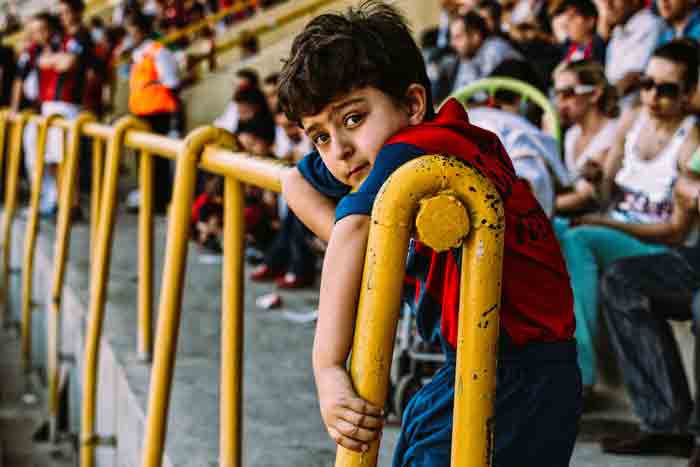IELTS Speaking Part 2: IELTS Cue Card
Describe an occasion when you spent time with a young child.
You should say:
When was it?
Who the child was?
Why did you spend time with the child?
Explain what you did and how did you feel.
Note: You will have to talk about the topic for one to two minutes. You have one minute to think about what you are going to say. You can make some notes to help you if you wish.
Table Of Contents
Model Answer 1:
Introduction:
Spending time with a young child is truly special. Their innocence reminds us of the simple joys in life and helps us see the world through fresh eyes.
Who the child was?
Today, I would like to talk about a time when I spent an afternoon with my little cousin, Aryan.
When was it? and Why did you spend time with the child?
It was a warm summer day, and Aryan’s parents were busy with some work, so they asked me to look after him for a few hours. Aryan was only four years old at the time, and I remember feeling a little nervous at first.
I wasn’t used to spending time with young children, and I wasn’t sure if I would be able to keep him entertained. But as soon as I saw his smiling face and heard his infectious giggle, all my worries melted away.
We spent the afternoon playing in the park, chasing each other around and having a picnic on the grass. Aryan was full of energy and curiosity, asking me all sorts of questions about the world around us.
I did my best to answer his questions and teach him new things. We looked at the different flowers and trees, watched the birds flying overhead and even made friends.
As the sun began to set, we headed back home. Aryan fell asleep in the car, exhausted from all the fun we had.
Explain what you did and how did you feel and Conclusion:
I felt happy, knowing that I had positively impacted his life and helped him learn and grow. I will always cherish that afternoon I spent with Aryan and look forward to spending more time with him in the future.
Model Answer 2:
Introduction:
- I love playing sports and games.
- So, I love spending time with children.
When was it? and Who the child was?
- Today, I want to talk about a time when I spent time with my nephew.
- Last year, my sister and her children came to stay with us during the summer vacations.
Why did you spend time with the child?
- My sister and my niece wanted to do some shopping, so they went to the mall and left me home with my nephew.
- We had a blast.
Explain what you did and how did you feel.
- The first thing we did was to order ourselves a pizza.
- Then we played on the Play Station for a while.
- We both love playing Fifa and though my nephew is a a lot younger than me, he beat me in all the games.
- I am getting better though and the next time he visits, ill beat him for sure.
- After playing Fifa, we went out and played badminton in the nearby park.
- While playing he saw and ice cream truck and then he started throwing a tantrum for one.
- My sister had especially forbidden me to get him ice cream as he had already eaten one in the morning.
- When I told him no, he started crying and he would leave the park.
- Ultimately I bought him the ice cream and made him promise not to tell my sister.
- He broke the promise as soon as he saw my sister.
- I really enjoyed spending time with my nephew but at the end of it all, I also felt exhausted.
- He is full of energy and he can’t sit idle for one second.
Conclusion:
- I guess that’s why they say raising kids isn’t as easy as it seems.
IELTS Speaking Part 3 : Follow up Questions
Here some examples of follow up questions that you may asked during your speaking part 3 by examiner related to cue card “describe an occasion when you spent time with a young child”.
1. Do you think there are too many rules for young children to follow, whether at school or at home?
It depends on how you look at it. If rules are taken as an unnecessary nuisance, then they may seem too many. But if taken as a means to discipline, then they at not seem so. I don’t think children have too many rules to follow.
2. Do you think children should follow all the rules?
Yes, Children should try to follow as many rules as possible so as to grow into disciplined and responsible adults.
3. Do you think it’s necessary for parents to take decisions for their children?
Yes, when the children are too young and can’t understand the implications (outcomes) of their decisions, parents should take the decision on their behalf.
4. Do you think it’s good for parents to help children choose friends?
Parents can guide them in selecting their friends to a certain extent; friends are made from the heart, and ultimately, the child will choose those friends who appeal to him.
5. Where do children usually play?
Very young children and toddlers like to play somewhere close to the grown-ups. Older children like to be more independent, so they like to play outdoors and don’t mind being away from their parents.
6. While traveling with children, which of the parents takes more care of the children?
In the modern day, both parents take turns looking after their children. In new surroundings, maybe the father takes the lead in taking care of his offspring.
7. How do parents teach children to respect people?
The best way for parents to teach children how to respect others is by setting an example for them. Children are like monkeys; they automatically follow what others do.
8. Do outdoor activities help children?
Yes, it helps in two ways. It makes children more agile and fit, and secondly, it helps them to develop social skills as they meet and spend time with other children when they do these activities.
9. What is the difference between the outdoor activities children play now and before?
The first difference is that children don’t do outdoor activities nowadays because they spend most of their time on phones and computers. Secondly, children had a lot more freedom to do activities like they could swim in lakes, and exploring forests and caves, whereas nowadays, children mainly spend time on mainstream sports like football, cricket and so on. Perhaps, this is because sports amenities were not so developed in the past, and also, there was less crime, so parents felt safe letting their children play unsupervised.
10. Which side, the father or the mother, invests more experience in caring for the child? Why? How can we change this?
I think normally, mothers spend more time caring for children. One reason is traditional inertia. In the past, women were mostly homemakers, and men used to work, so women used to care for the children. Although most women are working nowadays, they are still considered more responsible for taking care of children. Secondly, it is because of biology. In other words, as women give birth, they also develop a sense of affection and care toward children that men cannot. I don’t think we can change this completely, but it is slowly happening on its own.
Important Vocabularies:
1. Innocence
the state of being free from guilt or moral wrong; lack of knowledge or understanding.
Example:
The innocence of young children is something to be cherished.
2. Nervous
anxious or apprehensive; easily agitated or alarmed.
Example:
I was nervous about giving the speech in front of a large audience.
3. Entertained
provide (someone) with amusement or enjoyment.
Example:
The clown entertained the children at the birthday party.
4. Infectious
likely to spread or influence others in a rapid manner.
Example:
Her laughter was infectious and soon everyone in the room was laughing along with her.
5. Curiosity
a strong desire to know or learn something.
Example:
The child’s curiosity led her to ask many questions about the world around her.
6. Exhausted
drained of one’s physical or mental resources; very tired.
Example:
After running the marathon, I was completely exhausted.
7. Cherish
I will always cherish the memories of my time spent with my grandparents.
Example:
I really enjoyed spending time with my nephew but at the end of it all, I also felt exhausted.
8. giggle
means to laugh lightly in a nervous, affected, or silly manner.
Example:
The children couldn’t help but giggle when the teacher made a funny face.
9. Tantrum
An uncontrolled outburst of anger and frustration, typically in a young child.
Example:
While playing he saw and ice cream truck and then he started throwing a tantrum for one.
10. Forbidden
Not allowed; banned.
Example:
My sister had especially forbidden me to get him ice cream.
11. Exhausted
Drained of one’s physical or mental resources; very tired.
Example:
I really enjoyed spending time with my nephew but at the end of it all, I also felt exhausted.
12. Idle
Without purpose or effect; pointless.
Example:
He is full of energy and he can’t sit idle for one second.
Credits:
Photo by sporlab on Unsplash






